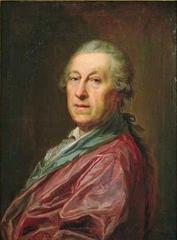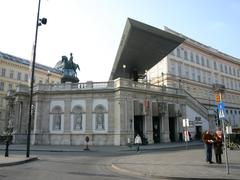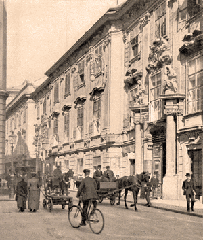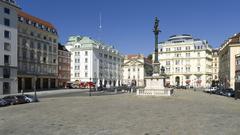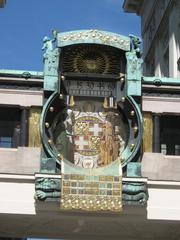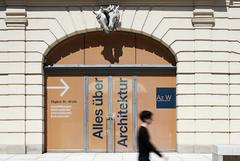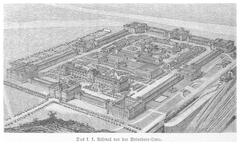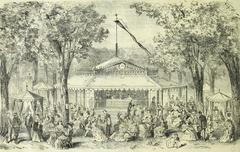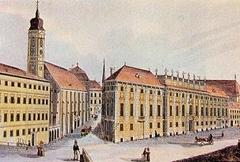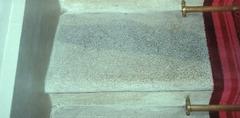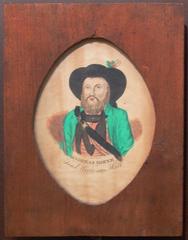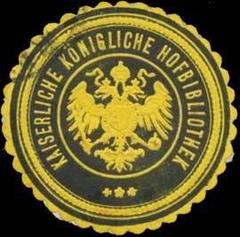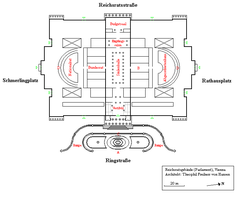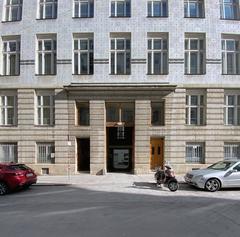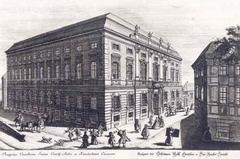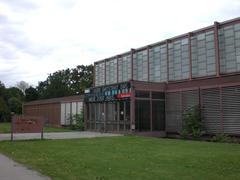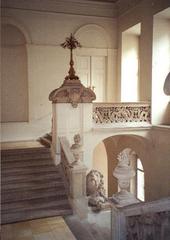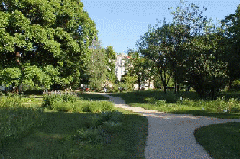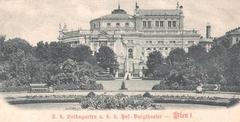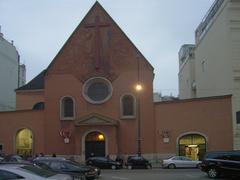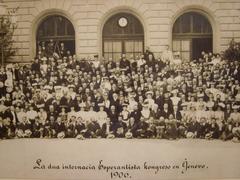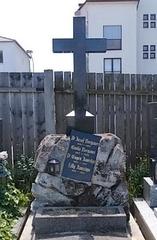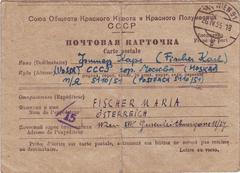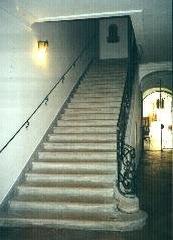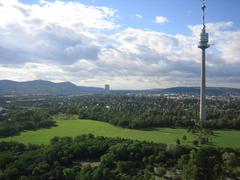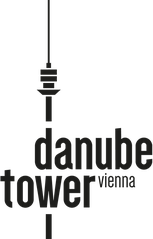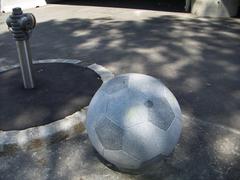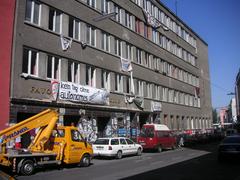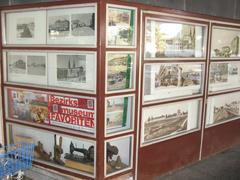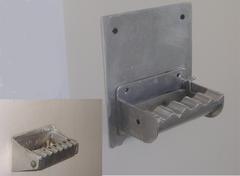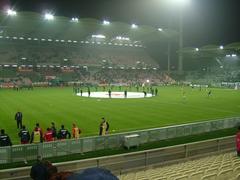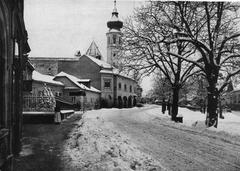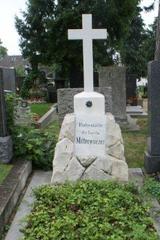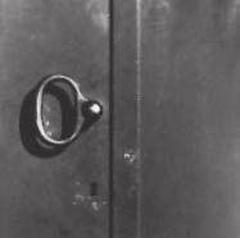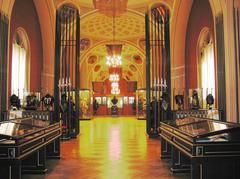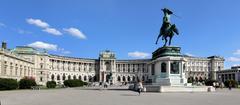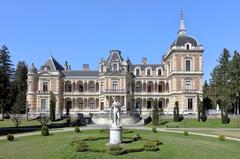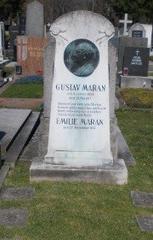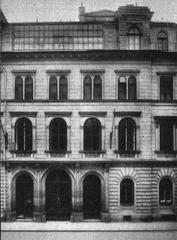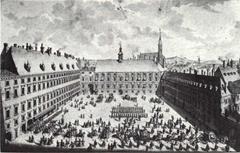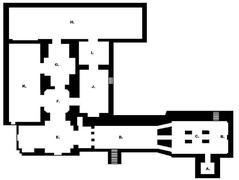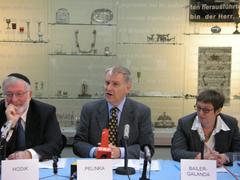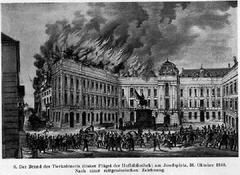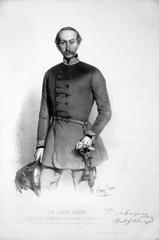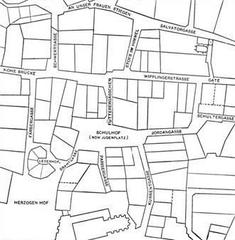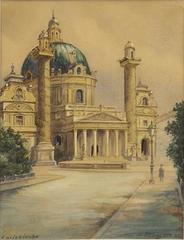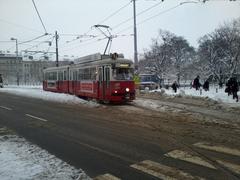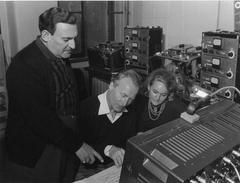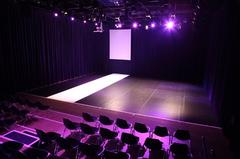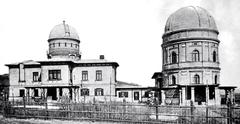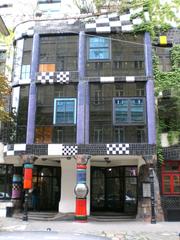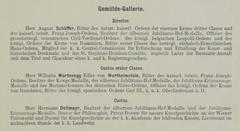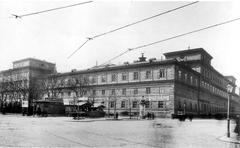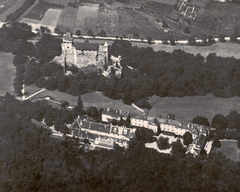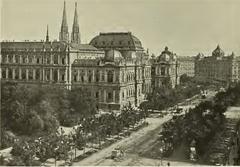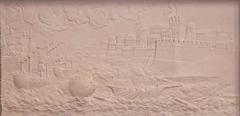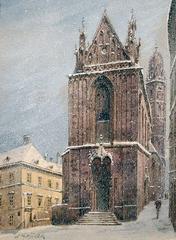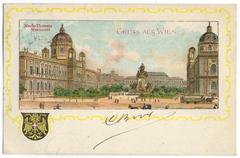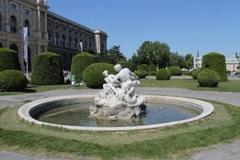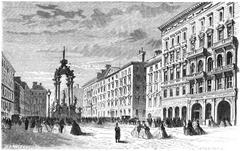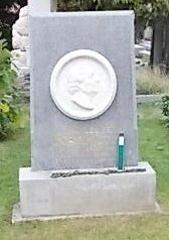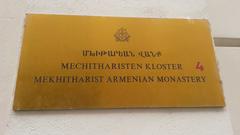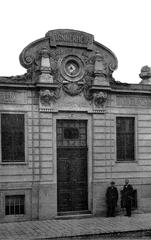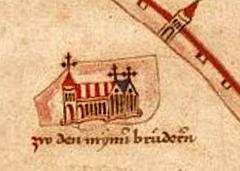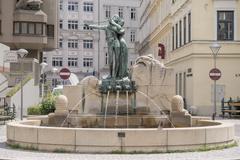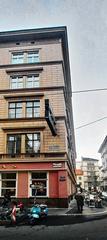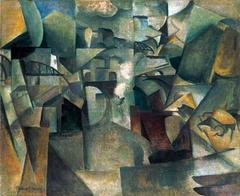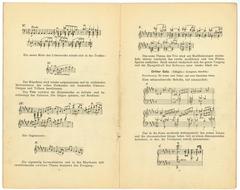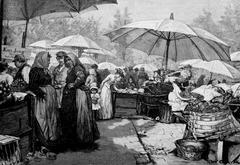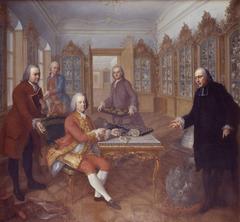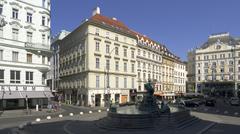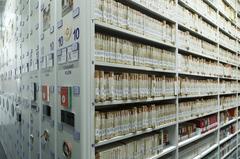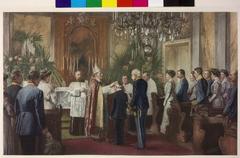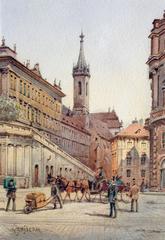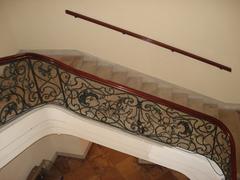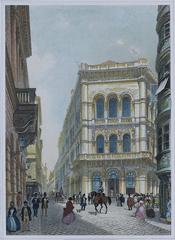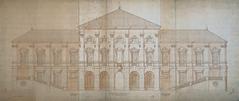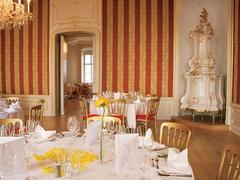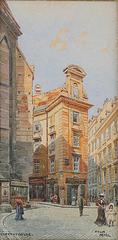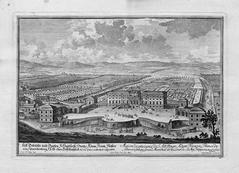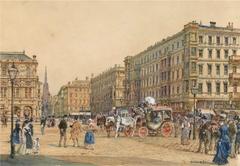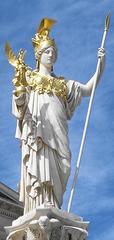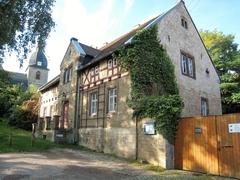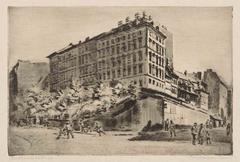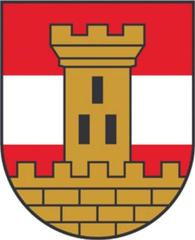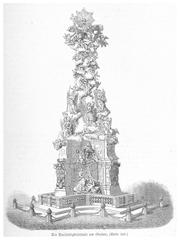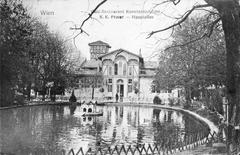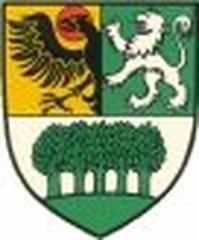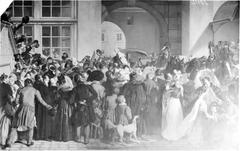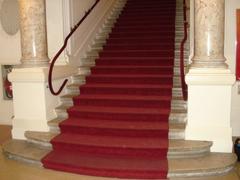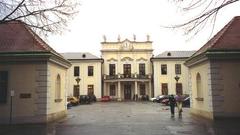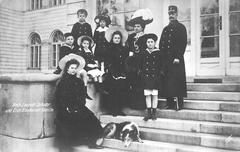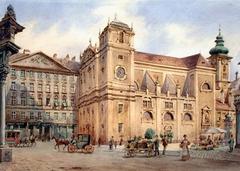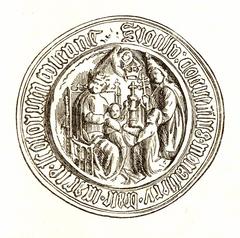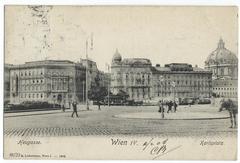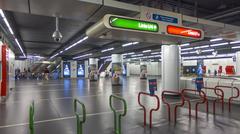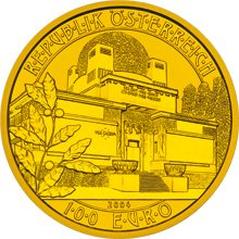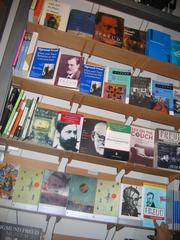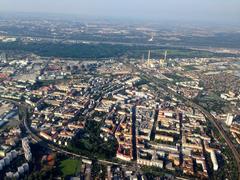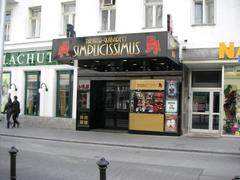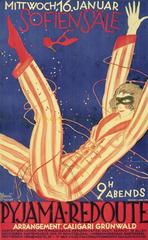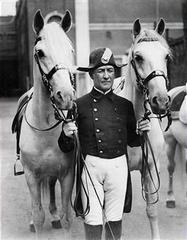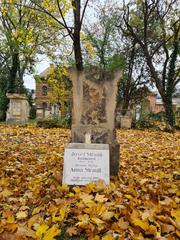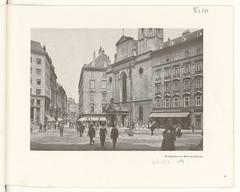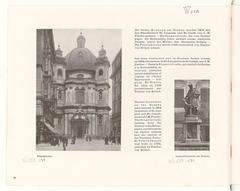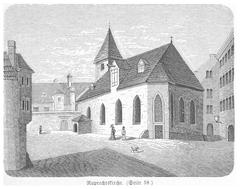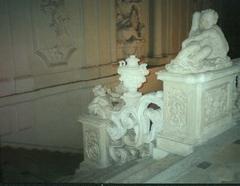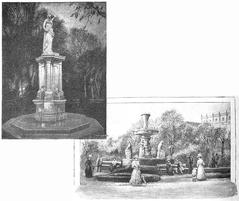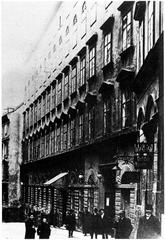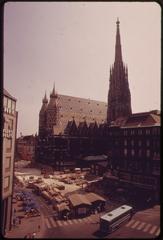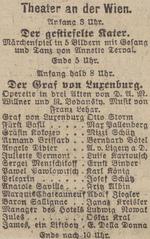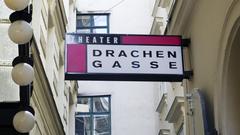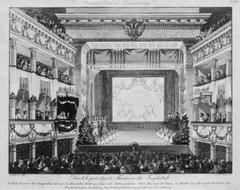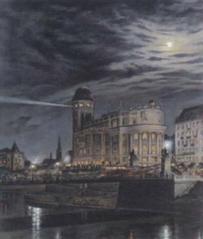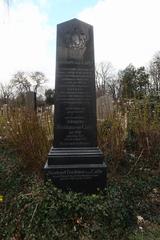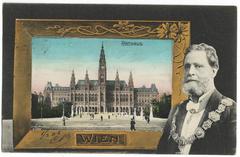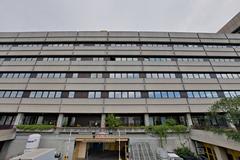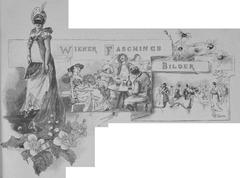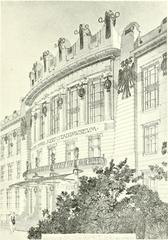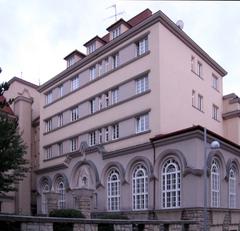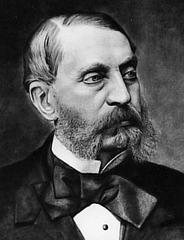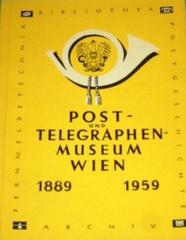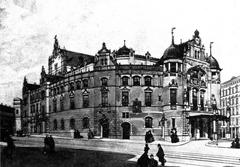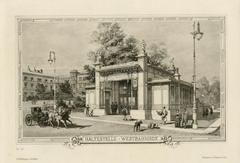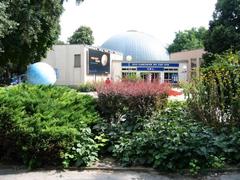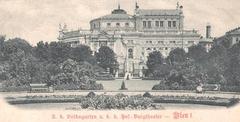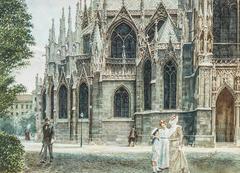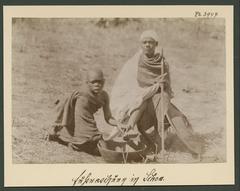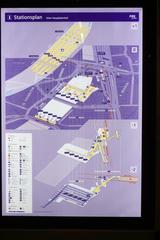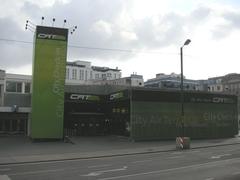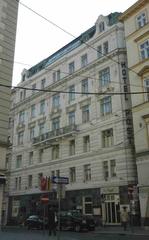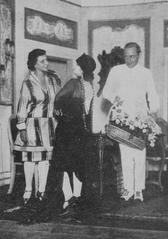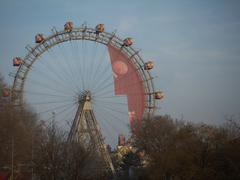
Vienna University Archive: Visiting Hours, Tickets, and Historical Sites Guide
Date: 04/07/2025
Introduction
The Vienna University Archive stands as a gateway to more than 650 years of academic and cultural history. Located in the heart of Vienna, Austria, the archive preserves foundational documents, manuscripts, faculty records, and multimedia collections that chronicle the evolution of the University of Vienna—Europe’s oldest German-speaking university. Whether you are a historian, researcher, student, or tourist interested in Vienna’s intellectual legacy, this guide will equip you with essential information on visiting hours, ticketing, accessibility, research tips, and nearby attractions.
For more details, visit the Vienna University Archive official website. Explore more about the history of the University of Vienna and Vienna historical sites.
Historical Overview
Origins and Evolution
Founded in 1365, the University of Vienna’s archive began with the “Archa universitatis” in 1388, an iron chest safeguarding the university’s foundational charters and deeds. Faculty members managed the archive, maintaining its continuity and ensuring the preservation of crucial academic and administrative records. Over the centuries, the archive expanded its holdings, reflecting the changing landscape of European education and society (Vienna University Archive History).
19th and 20th Century Developments
Professionalization of the archive began in 1875 with the appointment of its first full-time archivist. The 20th century brought significant reforms, including its establishment as an independent division in 1975 and integration with the Vienna University Library and Archive Services in 2004. The archive also became the base for the Austrian Society for the History of Science in 1997, underscoring its scholarly importance (Vienna University Archive History).
Collections and Research Resources
The archive houses a comprehensive array of materials:
- Medieval charters and legal documents
- Student registers and faculty minutes
- Correspondence from renowned scholars such as Sigmund Freud and Erwin Schrödinger
- Rare manuscripts, photographs, maps, and architectural plans
- Specialized reference library focusing on university and science history (Archive Library)
Digital Access
The Phaidra-Collection and other digitization projects provide global access to key documents and images. High-quality digital scans and virtual tours are available, allowing remote research (Digital Archive, Digitized Finding Aids).
Practical Visitor Information
Location and Directions
The Vienna University Archive is located at Universitätsring 1, 1010 Vienna, within the University of Vienna campus. Public transport access is convenient, with the U2 subway (Schottentor station) and tram lines 1, 2, D, and 71 nearby. The archive’s entrance is clearly signposted in both German and English (Travelsewhere).
Visiting Hours
- Monday–Friday: 9:00 AM – 5:00 PM
- Closed: Weekends and public holidays
- Always confirm current hours and special closures on the official website.
Admission and Tickets
- Admission: Free for all visitors.
- Registration: Required for research use; bring a valid photo ID.
- Research Passes (for extended study):
- 2-day pass: €5
- Weekly pass: €10
- Monthly pass: €25
- Annual pass: €50
Passes can be purchased at the archive’s cash desk.
Accessibility
The archive offers full barrier-free access, including elevators and accessible restrooms. Staff are available to assist visitors with additional needs.
Research and Reading Room Protocols
- Upon arrival, register at the front desk and receive a user card.
- Only pencils, laptops, and notepads are allowed; pens and food/drinks are prohibited.
- Materials must be reserved at least 14 days in advance for research purposes.
- Photography of documents is permitted only with staff approval.
- Personal belongings must be stored in designated lockers.
Language Support
Most materials are in German (with some Latin in older documents). Staff speak German and English and can assist international visitors.
Guided Tours, Exhibitions, and Events
The archive regularly hosts guided tours, lectures, and exhibitions that showcase university milestones and Viennese academic heritage. These events often highlight scientific achievements, the role of women scholars, and pivotal moments in university history.
- Booking: Guided tours and group visits must be arranged in advance.
- Exhibitions: Check current schedules on the archive’s events page.
Nearby Attractions
Located in Vienna’s historic center, the archive is near major sites such as:
- University of Vienna’s historic main building
- Vienna State Opera
- Austrian National Library
- Hofburg Palace
- MuseumsQuartier
These landmarks offer further opportunities to explore Vienna’s rich cultural and intellectual landscape (Timeout Vienna).
Visitor Tips
- Plan Ahead: Contact the archive at least two weeks in advance for research visits.
- Prepare Research Questions: Streamline your visit by having clear objectives.
- Bring Valid ID: Required for registration.
- Use Digital Tools: Reserve materials and reading room seats online.
- Follow Archive Rules: Preserve the integrity of collections.
- Explore Vienna: Combine your visit with nearby historical sites and cultural experiences.
Frequently Asked Questions (FAQ)
Q: Do I need to book in advance for research?
A: Yes, materials should be reserved at least 14 days prior to your visit via the online archive system.
Q: Is there an admission fee?
A: General admission is free; research passes are available for extended access.
Q: Is the archive accessible for those with disabilities?
A: Yes, the building is fully wheelchair accessible.
Q: Can I take photographs inside the archive?
A: Only with prior staff approval.
Q: Are guided tours available?
A: Yes, but must be booked in advance.
Visual and Virtual Resources
High-quality images of the Vienna University Archive, reading room, and digital catalog interface are available online. Virtual tours and interactive maps offer an immersive preview of the archive (Digital Archive).
Safety and Security
The archive is a secure environment, but standard precautions apply. Personal items should be stored in lockers, and staff are available in case of emergencies (The Vienna Blog).
Additional Resources
- University of Vienna Archive Official Website
- Vienna Unwrapped: Local Guides and Tips
- Timeout Vienna: Best Things to Do
- The Vienna Blog: Practical Tips
- Travelsewhere: Visiting Vienna
- Austrian State Archives user information
Conclusion and Call to Action
A visit to the Vienna University Archive is a journey into the heart of academic and cultural Vienna. With its extensive collections, digitized resources, professional support, and integration with Vienna’s vibrant city center, the archive is a cornerstone of both scholarly research and public education.
Plan your visit today, attend a guided tour or exhibition, and explore Vienna’s intellectual heritage. Download the Audiala app for interactive tours and personalized visitor information. Stay updated on events and resources by following official channels.
For more information, visit the Vienna University Archive official website.
Sources
- Vienna University Archive: Visitor Information, Historical Insights, and Practical Guide (https://bibliothek.univie.ac.at/archiv/en/geschichte.html)
- Visiting the Vienna University Archive: Hours, Tickets, and Historical Insights (https://bibliothek.univie.ac.at/archiv/en/)
- History of the University of Vienna (https://bibliothek.univie.ac.at/geschichte-universitaet-wien)
- Vienna Historical Sites to Visit (https://www.wien.info/en/sightseeing)
- Vienna Unwrapped: Local Guides and Tips (https://vienna-unwrapped.com/)
- Timeout Vienna: Best Things to Do (https://www.timeout.com/vienna/things-to-do/best-things-to-do-in-vienna)
- The Vienna Blog: Practical Tips (https://www.theviennablog.com/practical-tips-for-visiting-vienna/)
- Travelsewhere: Visiting Vienna (https://www.travelsewhere.net/visiting-vienna/)
- Austrian State Archives user information (https://www.statearchives.gv.at/user-information/how-to-use-the-archives.html)

